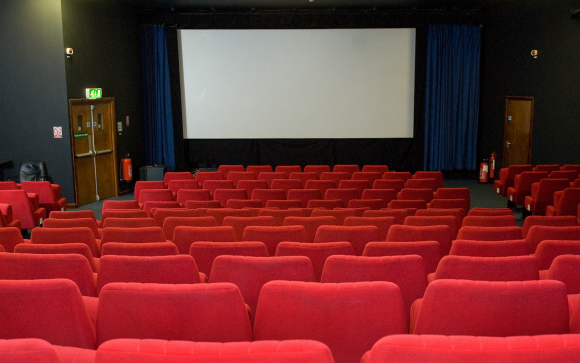
Ever get the feeling that Japanese cinema isn’t as good as it used to be? You’re not alone.
it would be unfair to say that all Japanese films stink these days. Adam Torel of Third Window Films will gladly remind you that there are still great filmmakers in Japan, such as Tetsuya Nakashima and Yoshihiro Nakamura to name a few.
▼ There have been several good movies in the past 10 years.
But when it comes to major productions, like a certain titan slaying franchise, Japanese studios can’t seem to put together a solid product. This is worrisome for Torel, whose company has a vested interest in Asian movies being good so that they can promote and distribute them in the west. We’ll have to forgive him, then, if he doesn’t exactly mince his words when discussing Japan’s cinematic offerings:
“Even major productions like Attack on Titan are worse than a low-budget American TV show. Is this not embarrassing?”
“Among Asian films South Korea and China have been hard at work. On the other hand, Japan has been steadily lowering the bar. Japanese cinema used to be the most highly regarded in Asia, but now South Korea, China, Taiwan, and Thailand have been stealing their thunder.”
“The quality of Japanese movies is really low. I’ve come to hate them.”
Again, he’s not referring to all movies here, but a trend in mainstream cinema that has gone on for a while now. In an interview with Sankei Shimbun, Torel laid out three reasons why he thinks the Japanese film industry has been on the decline.
#1 Production Committees
Torel’s biggest concern with the industry is what is known as the Seisaku Inkai Hoshiki or Production Committee System. He describes this as a panel of corporate investors who play a large role in the making of the film in order to minimize the risk to their investment. Since creativity and risk tend to go hand in hand, it’s not hard to see the flaw in this system.
▼ For every one good film, there have been scores of bland adaptations.
To give a sense of the scope of the Production Committee System, Torel points out that in Japan people seldom know the director of the movies they watch. In American or British cinema, viewers often chose a movie solely—or at least partly—on the reputation of the person directing it, but in Japan, aside from old-school names like Miyazaki or Miike, you’d be hard-pressed to find a director whose name alone would sell tickets.
Torel goes as far as to say that in many cases current directors are merely a “puppet” of the Production Committee.
#2 Low pay
Torel also claims that the cast and crew of Japanese movies aren’t compensated enough for their work. Of course, as human nature dictates, if one doesn’t feel they are getting paid enough, they don’t put in their full effort, even in Japan where the cash-to-performance output of people is well above the developed world average.
That being said, Japan is a long way behind Hollywood when it comes to cash to splash on movie productions. However, in Third Window Films’ own Gesu No Ai (Lowlife Love), the lack of funds was made up for in royalties. “Wouldn’t it be fair for everyone to share in the film’s success?” asks Torel.
▼ Lowlife Love
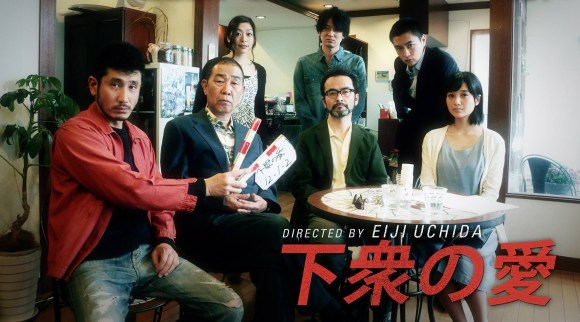
#3 No accountability
Finally, Torel also notices that Japanese critics, somewhat ironically, don’t do a whole lot of critiquing in their movie reviews. “Japanese critics don’t say if a movie is no good even if they are thinking it. On the contrary, they’ll call it ‘amazing.’ Why do they do that?”
Aside from the spectacular critical disgust against the Attack on Titan films, Japanese critics really don’t spend time focusing on the negative. This is partly because in Japan the old saying, “If you don’t have anything nice to say, don’t say anything at all” is a pretty golden.
So a critic will tell you if a movie isn’t very good but not directly, and they’ll choose their words very carefully. It’s like if I ask you to date my cousin and say that he/she “has a great personality!” You know exactly what that means…
▼ Yup, those Eight Rangers movies really don’t take themselves too seriously, if you catch my drift.
Although it’s possible to read between the lines, it can be confusing. And in some cases, the cold hard truth could be just what some movie makers need to step up their game.
As a rule in Japan, when a foreigner like Torel comes in and starts pointing out the country’s short-comings, it generally doesn’t go over too well with the locals, regardless of who’s actually in the right. In this particular instance, however, it seems a lot of Japanese agree with Torel’s assessment of their country’s movie industry, and many thought he was being too kind if anything.
“Only recently? It’s always been like that.”
“It is embarrassing.”
“It’s very embarrassing.”
“It’s seriously third-rate.”
“Seriously, Japan’s video technology is like 20 years behind.”
“Isn’t it? It’s all crap tied in with AKB, Johnnys and Exile.”
“Japanese movies died with Kurosawa. It will never come back.”
“Japanese cinema has been dead for about a decade now. It’s just an extension of television.”
The industry may be on the rocks, but you also have to hand it to Torel and Third Window Films, since they aren’t simply whining about the state of Japanese cinema here; they’re putting their money where their mouths are and investing in talented directors like Sion Sono, Tetsuya Nakashima, and Yosuke Fujita by producing their films. The company is also restoring older films by Beat Takeshi (Hana-bi, Dolls) and Shinya Tsukamoto (Tetsuo: The Iron Man) for Blu-ray release overseas, and recently distributed a modern gem of Japanese film, Ken Ochiai’s Uzumasa Limelight, on the big screen in the UK and aims to bring it to DVD and Blu-ray soon.
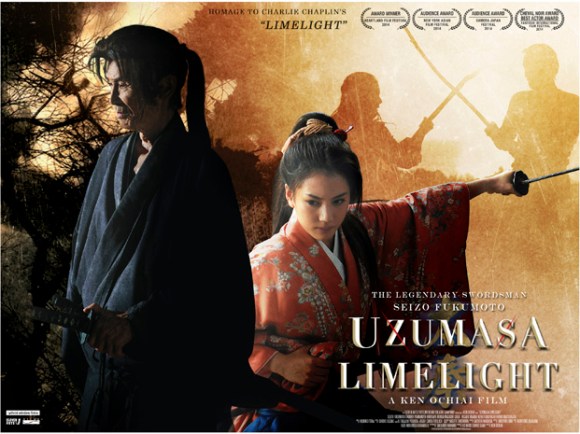
Certainly the talent is here in Japan. What’s lacking is an environment where worthy artists can get the backing they need to fully express themselves. Until that can be achieved, mediocrity will continue to rule the cinematic landscape.
Source: Sankei Shimbun via Yahoo! Japan News, Itai News (Japanese), Third Window Films (English)
Top Image: Wikipedia – Qft1

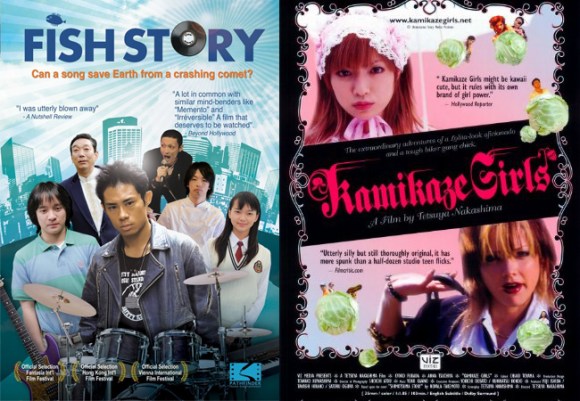
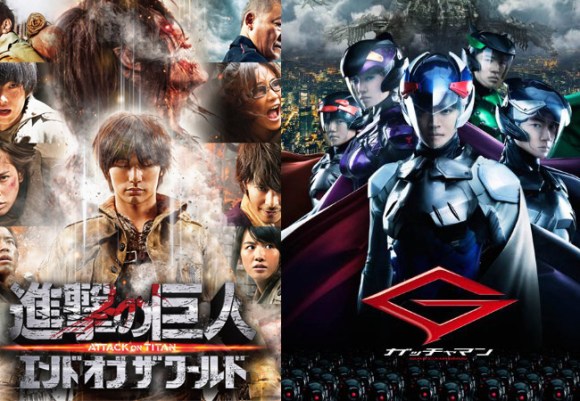
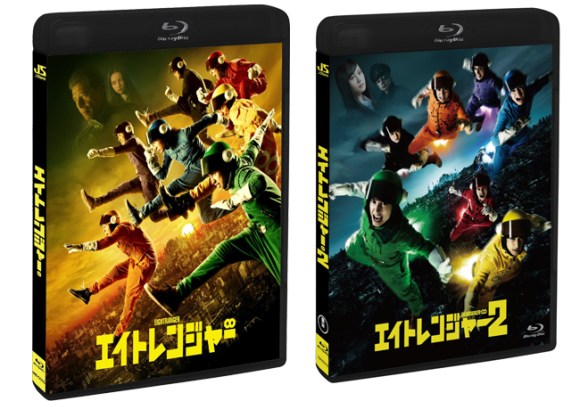
 Japanese survey reveals the reason for Your Name’s immense popularity
Japanese survey reveals the reason for Your Name’s immense popularity The newest Godzilla movie is coming in November 2023, but fans are concerned it won’t be any good
The newest Godzilla movie is coming in November 2023, but fans are concerned it won’t be any good Over 94 percent of Japanese people in survey find movie theater prices too expensive
Over 94 percent of Japanese people in survey find movie theater prices too expensive Cinemas in China let audience post comments onto the screen during the movies
Cinemas in China let audience post comments onto the screen during the movies Tokyo movie theater allows cheering but forbids speaking Japanese at special screening
Tokyo movie theater allows cheering but forbids speaking Japanese at special screening Starbucks Japan unveils new sakura cherry blossom collection for hanami season 2026
Starbucks Japan unveils new sakura cherry blossom collection for hanami season 2026 Is Tokyo Station’s startlingly expensive wagyu bento boxed lunch worth its high price?[Taste test]
Is Tokyo Station’s startlingly expensive wagyu bento boxed lunch worth its high price?[Taste test] Sakuramochi festival sweetens things up at Tokyo’s Seibu Ikebukuro this season
Sakuramochi festival sweetens things up at Tokyo’s Seibu Ikebukuro this season Lawson adds doughnuts to its convenience store sweets range, but are they good enough to go viral?
Lawson adds doughnuts to its convenience store sweets range, but are they good enough to go viral? One Piece creator has hidden secret of anime treasure’s identity in chest at bottom of real-world ocean
One Piece creator has hidden secret of anime treasure’s identity in chest at bottom of real-world ocean Sakura Festival in Chiyoda mixes illuminations, boats, music, and Rilakkuma in the heart of Tokyo
Sakura Festival in Chiyoda mixes illuminations, boats, music, and Rilakkuma in the heart of Tokyo Is Sapporio’s Snow Festival awesome enough to be worth visiting even if you hate the snow? [Pics]
Is Sapporio’s Snow Festival awesome enough to be worth visiting even if you hate the snow? [Pics] Which convenience store onigiri rice balls are the most popular? Survey reveals surprising results
Which convenience store onigiri rice balls are the most popular? Survey reveals surprising results Naruto and Converse team up for new line of shinobi sneakers[Photos]
Naruto and Converse team up for new line of shinobi sneakers[Photos] Ichiran Ramen opens new premium branch in Ginza with high-class boxed noodles
Ichiran Ramen opens new premium branch in Ginza with high-class boxed noodles Starbucks Japan releases first-ever Hinamatsuri Girls’ Day Frappuccino
Starbucks Japan releases first-ever Hinamatsuri Girls’ Day Frappuccino Japanese restaurant chain serves Dragon Ball donuts and Senzu Beans this spring
Japanese restaurant chain serves Dragon Ball donuts and Senzu Beans this spring Japan Extreme Budget Travel! A trip from Tokyo to Izumo for just 30,000 yen [Part 1]
Japan Extreme Budget Travel! A trip from Tokyo to Izumo for just 30,000 yen [Part 1] Highest Starbucks in Japan set to open this spring in the Tokyo sky
Highest Starbucks in Japan set to open this spring in the Tokyo sky Japan’s craziest burger chain takes menchi katsu to new extreme levels
Japan’s craziest burger chain takes menchi katsu to new extreme levels Japan Extreme Budget Travel! A trip from Tokyo to Izumo for just 30,000 yen [Part 2]
Japan Extreme Budget Travel! A trip from Tokyo to Izumo for just 30,000 yen [Part 2] Japan has only one airport named after a samurai, so let’s check out Kochi Ryoma【Photos】
Japan has only one airport named after a samurai, so let’s check out Kochi Ryoma【Photos】 Japanese drugstore sells onigiri at pre-stupid era prices, but how do they compare to 7-Eleven?
Japanese drugstore sells onigiri at pre-stupid era prices, but how do they compare to 7-Eleven? Viral Japanese cheesecake from Osaka has a lesser known rival called Aunt Wanda
Viral Japanese cheesecake from Osaka has a lesser known rival called Aunt Wanda Japan’s newest Shinkansen has no seats…or passengers [Video]
Japan’s newest Shinkansen has no seats…or passengers [Video] Starbucks Japan releases new sakura goods and drinkware for cherry blossom season 2026
Starbucks Japan releases new sakura goods and drinkware for cherry blossom season 2026 Foreigners accounting for over 80 percent of off-course skiers needing rescue in Japan’s Hokkaido
Foreigners accounting for over 80 percent of off-course skiers needing rescue in Japan’s Hokkaido Super-salty pizza sends six kids to the hospital in Japan, linguistics blamed
Super-salty pizza sends six kids to the hospital in Japan, linguistics blamed Starbucks Japan unveils new sakura Frappuccino for cherry blossom season 2026
Starbucks Japan unveils new sakura Frappuccino for cherry blossom season 2026 Foreign tourists in Japan will get free Shinkansen tickets to promote regional tourism
Foreign tourists in Japan will get free Shinkansen tickets to promote regional tourism The 10 most annoying things foreign tourists do on Japanese trains, according to locals
The 10 most annoying things foreign tourists do on Japanese trains, according to locals Take a trip to Japan’s Dododo Land, the most irritating place on Earth
Take a trip to Japan’s Dododo Land, the most irritating place on Earth Is China’s don’t-go-to-Japan warning affecting the lines at a popular Tokyo gyukatsu restaurant?
Is China’s don’t-go-to-Japan warning affecting the lines at a popular Tokyo gyukatsu restaurant? Survey asks foreign tourists what bothered them in Japan, more than half gave same answer
Survey asks foreign tourists what bothered them in Japan, more than half gave same answer Japan’s human washing machines will go on sale to general public, demos to be held in Tokyo
Japan’s human washing machines will go on sale to general public, demos to be held in Tokyo Starbucks Japan releases new drinkware and goods for Valentine’s Day
Starbucks Japan releases new drinkware and goods for Valentine’s Day We deeply regret going into this tunnel on our walk in the mountains of Japan
We deeply regret going into this tunnel on our walk in the mountains of Japan Studio Ghibli releases Kodama forest spirits from Princess Mononoke to light up your home
Studio Ghibli releases Kodama forest spirits from Princess Mononoke to light up your home Major Japanese hotel chain says reservations via overseas booking sites may not be valid
Major Japanese hotel chain says reservations via overseas booking sites may not be valid Put sesame oil in your coffee? Japanese maker says it’s the best way to start your day【Taste test】
Put sesame oil in your coffee? Japanese maker says it’s the best way to start your day【Taste test】 No more using real katana for tourism activities, Japan’s National Police Agency says
No more using real katana for tourism activities, Japan’s National Police Agency says Anime classic Marmalade Boy to become live-action movie
Anime classic Marmalade Boy to become live-action movie New Family Mart cinema opens inside Japanese airport
New Family Mart cinema opens inside Japanese airport Japanese-produced CG Godzilla movie coming soon from anime’s hottest scriptwriter
Japanese-produced CG Godzilla movie coming soon from anime’s hottest scriptwriter Hollywood producer talks about upcoming new Super Mario movie, doesn’t make it sound not terrible
Hollywood producer talks about upcoming new Super Mario movie, doesn’t make it sound not terrible Japanese Avengers Fans Up in Arms Over Shoddy Voice Acting on Blu-ray Release
Japanese Avengers Fans Up in Arms Over Shoddy Voice Acting on Blu-ray Release Japanese movie theater chain’s popcorn earns highest Grand Prix quality certification
Japanese movie theater chain’s popcorn earns highest Grand Prix quality certification Japanese conservatives call for ban on Angelina Jolie’s WWII movie
Japanese conservatives call for ban on Angelina Jolie’s WWII movie The new Godzilla vs. Kong trailer is out! Here’s what Japanese fans think of it
The new Godzilla vs. Kong trailer is out! Here’s what Japanese fans think of it Singing Love Songs to Angels? No Tomorrow for Us? More movies that got weird Japanese titles
Singing Love Songs to Angels? No Tomorrow for Us? More movies that got weird Japanese titles Times Square taken over by Straw Hat Pirates ahead of One Piece release 【Pics & Videos】
Times Square taken over by Straw Hat Pirates ahead of One Piece release 【Pics & Videos】 Studio Ghibli’s new anime may be the most expensive Japanese movie ever made, producer says
Studio Ghibli’s new anime may be the most expensive Japanese movie ever made, producer says Ghost of Tsushima live-action Hollywood movie on the way, Japanese Twitter reacts
Ghost of Tsushima live-action Hollywood movie on the way, Japanese Twitter reacts Anime Your Name to be remade as Hollywood live-action movie produced by J.J. Abrams
Anime Your Name to be remade as Hollywood live-action movie produced by J.J. Abrams Anime Your Name passes Princess Mononoke on all-time Japanese box office list, is now at number 3
Anime Your Name passes Princess Mononoke on all-time Japanese box office list, is now at number 3 Japanese Amazon reviewer tells us why Alien vs Avatar is awesome and Dark Knight sucks
Japanese Amazon reviewer tells us why Alien vs Avatar is awesome and Dark Knight sucks Anime Godzilla appears in trailer for new Japanese-produced CG film【Video】
Anime Godzilla appears in trailer for new Japanese-produced CG film【Video】